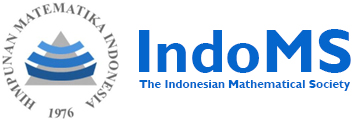ANALISIS VALIDITAS DAN PRAKTIKLITAS LEMBAR KERJA SISWA BERBASIS ETNOMATEMATIKA DALAM KONTEKS YOGYAKARTA

DOI:
https://doi.org/10.32665/james.v1iOctober.41Keywords:
Lembar Kerja Siswa, Etnomatematika, Valid, Praktis, Student Worksheets, Practical, EthnomathematicsAbstract
The purpose of this research was to develop and produce valid and practical Student Worksheet based on ethnomathematics of Yogyakarta context. The subjects of this research were teachers and students of SMP Negeri 1 Piyungan Yogyakarta class VII E. The collecting data were used validation questionnaire and practical questionnaire. The result showed that the worksheets were very valid and very practical. The validity rate was of 3,7, the practicality rate was 98% based on teachers assessment and rate was 82% based on students assessment.
Penelitian ini bertujuan untuk mengetahui apakah Lembar Kerja Siswa (LKS) berbasis etnomatematika dalam konteks Yogyakarta memenuhi kriteria Valid dan Praktis. Subjek Penelitian ini adalah guru dan siswa SMP Negeri 1 Piyungan Yogyakarta kelas VII E. Pengumpulan data menggunakan angket validasi dan angket kepraktisan. Hasil penelitian menunjukkan bahwa LKS memenuhi kriteria sangat valid dan sangat praktis. Dengan rata-rata nilai validitas adalah 3,7, rata-rata nilai kepraktisan adalah 98% melalui penilaian guru serta rata-rata nilai kepraktisan adalah 82% melalui penilaian siswa.
References
Downloads
Published
Issue
Section
License
Authors who publish with this journal agree to the following terms:
- Authors retain copyright and grant the journal right of first publication with the work simultaneously licensed under a Creative Commons Attribution License that allows others to share the work with an acknowledgment of the work's authorship and initial publication in this journal.
- Authors are able to enter into separate, additional contractual arrangements for the non-exclusive distribution of the journal's published version of the work (e.g., post it to an institutional repository or publish it in a book), with an acknowledgment of its initial publication in this journal.
- Authors are permitted and encouraged to post their work online (e.g., in institutional repositories or on their website) before and during the submission process, as it can lead to productive exchanges, as well as earlier and greater citation of published work
 PDF Download: 537
PDF Download: 537


















